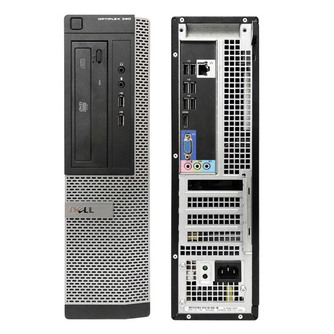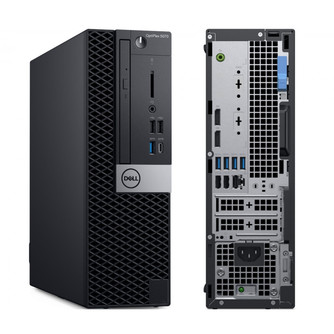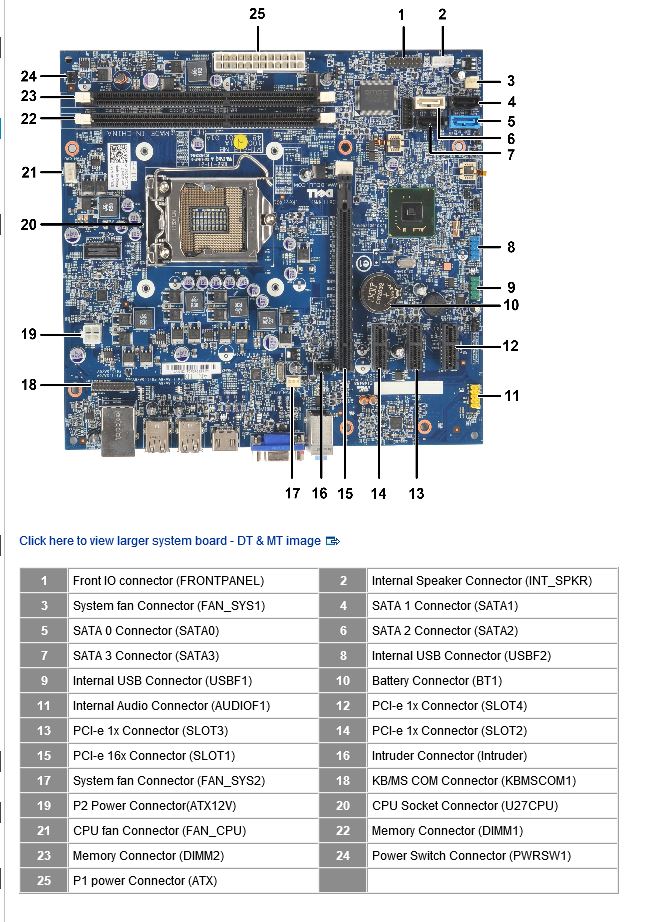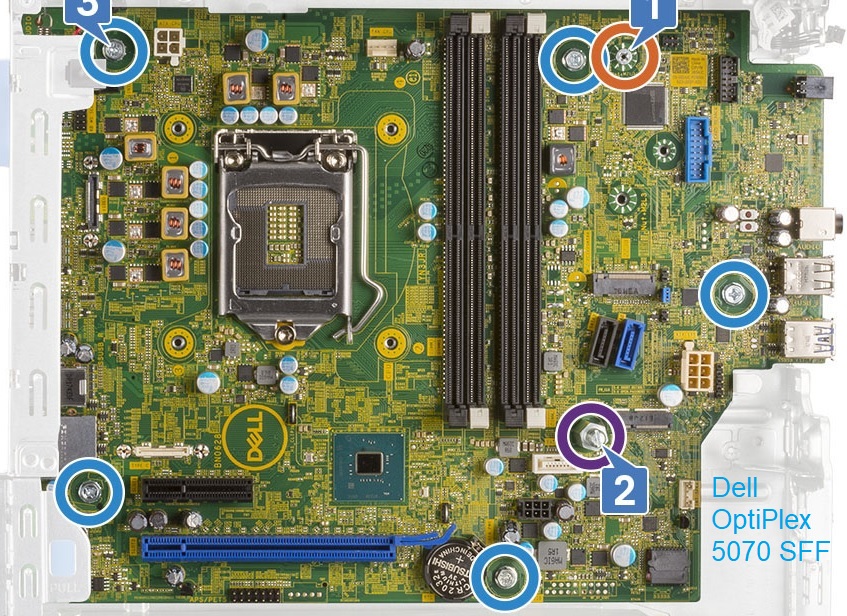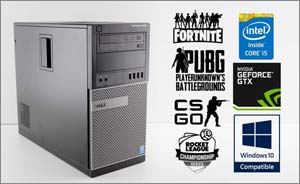Dell OptiPlex 390 DT vs. Dell OptiPlex 5070 SFF
Comparison and Differences
Differences between Dell OptiPlex 390 DT and Dell OptiPlex 5070 SFF
If you are looking for a more modern desktop, then you should go with the Dell OptiPlex 5070 SFF which was released in 2019. The Dell OptiPlex 390 DT is older and entered production in 2011.
If you are looking for the smaller form factor the Dell OptiPlex 5070 SFF is the right one for you. It is smaller than the Dell OptiPlex 390 DT and will fit more easily under your desk.
Processor
Usually the newer the generation of the CPU, the better the performance and efficiency is. If your budget allows it, you should go with the Dell OptiPlex 5070 SFF as it is running a newer generation CPU. This is not to say that Dell OptiPlex 390 DT is bad - it can still run some powerful CPUs, albeit being an older generation.
Memory
The Dell OptiPlex 5070 SFF has 4 RAM slots while the Dell OptiPlex 390 DT has only 2 slot(s). This is not something to worry about. Just make sure you take it into consideration when planning how much RAM you are going to use.
The Dell OptiPlex 5070 SFF is using the faster 2666 MT/s RAM. The Dell OptiPlex 390 DT is slower by supporting RAM speeds of up to 1333 MT/s. Additionally, if you will be needing a lot of RAM, better go for the Dell OptiPlex 5070 SFF as it has the ability to run 64 GB of RAM. The Dell OptiPlex 390 DT can do a bit less at max 8 GB. Most of the times, this should be sufficient for the majority of users.
Ports
In total the Dell OptiPlex 5070 SFF has 10 USB ports. The Dell OptiPlex 390 DT is inferior in this regard and packs 8 USB ports. In any case, if you miss USB ports, you can always purchase a USB hub. What is nice about the Dell OptiPlex 5070 SFF, is that it has 1 USB 3.1 port(s) which allows transfer of up to 10Gb/s. Unfortunately, the Dell OptiPlex 390 DT has no such port, thus restricting your transfer speeds significantly. For people who want to use external drives on regular basis, this might be an issue.
Unfortunately, only the Dell OptiPlex 5070 SFF has a DisplayPort. The Dell OptiPlex 390 DT does not have one? Don't worry though, nowadays video adapters are cheap and you can get almost any combination of conversion types.
The Dell OptiPlex 390 DT comes with an HDMI port, while the Dell OptiPlex 5070 SFF does not support the interface. Of course missing HDMI port is something that can be easily fixed with a good adapter (e.g. DisplayPort to HDMI).
SATA ports are placed on the system board and it is where you connect your HDD, SSD and Optical Disk Drives. More SATA slots will allow you to have more drives running at the same time. In this regard the Dell OptiPlex 390 DT is better equipped as it comes with 4 SATA slot(s), while the Dell OptiPlex 5070 SFF has 3 slot(s).
If you want the fastest transfer speeds for your SSD, an M.2 interface is crucial. Thus, if the M.2 SSD slot is a mandatory requirement for you, go with the Dell OptiPlex 5070 SFF. Sadly, the Dell OptiPlex 390 DT has no such slot, and you will be forced to use the SATA interface instead.
Make sure that the available M.2 slot supports the PCIe (also called NVMe) interface. This is important as there are M.2 slots which support only the inferior SATA III interface. For comparison, the SATA III interface has max speeds of 6Gb/s, while the PCIe 3.0 x4 will support speeds up to 32Gb/s!
Power Supply
Having a Power Supply Unit with high power rating is important, if you are going to use components which require extra power. The Dell OptiPlex 5070 SFF comes with a decent 200 Watt PSU, but the Dell OptiPlex 390 DT has a more powerful one rated at 250 Watts. Choosing either one depends on your specific requirements and use case. Also don't forget that some models might have more than one PSU option - try to always get the most powerful one, especially if you plan to upgrade to a powerful GPU.

